In our continuing series of perfectly lovely plants that get no respect because they perform so well they’ve become ubiquitous. We turn to what is arguably one of the more dissed of shrubs, the azalea. Well, no more. It’s not the fault of the plant after all. Azaleas are spectacular flowering beauties that earn their keep in summer. This is when their lush foliage becomes the ideal backdrop for showier seasonal show-offs–but rather how they’re used.
Here are a few ideas we hope will make you think, “Hmmm, I have just the place!”
This beautiful hardy azalea thrives in colder regions! Profuse single, reddish-purple blooms. Loves the dappled sunlight of a woodland garden. Semi-evergreen. Up to 4 ft. tall and 5 ft. wide. Zone: 6 – 9
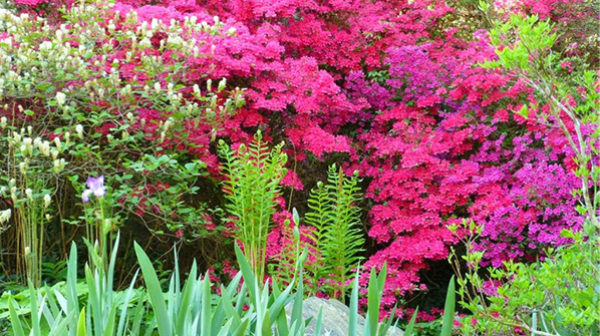
Pick a color palette
Those acres of rainbow-hued azaleas at Calloway Gardens might not be quite as magical in your back yard. (which likely lacks this dramatic sense of scale.)
You can still have a similarly remarkable garden moment by simply hewing to one colorway. Eschew the temptation of “I’ll have one of each” when faced with a dazzling display at a garden center. (We know, it’s not easy). Whether pretty pinks or shades of shocking orange. Planting in a single hue will result in a display that’s brilliant without being BRILLIANT.
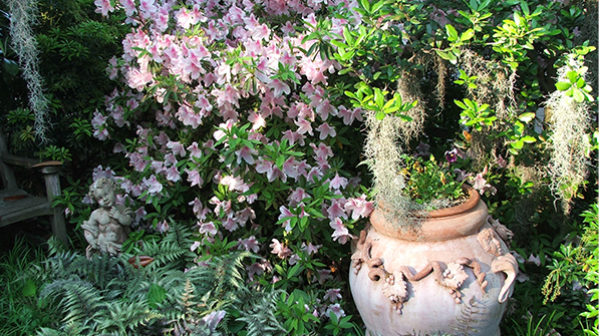
Make them part of the garden, not THE garden
When in bloom azaleas are the equivalent of a 4-alarm fire. Cool if you can give over the space to that one big moment. If not, treat azaleas as you would any other flowering shrub–as one piece of a puzzle.
Plant in drifts sandwiching them between other shade-preferred shrubs with different flowering times (such as pieris, camellias, daphnes). Add a layer or two of perennials such as the Japanese painted ferns shown here. This can help to break up the woody-impact of shrubbery.
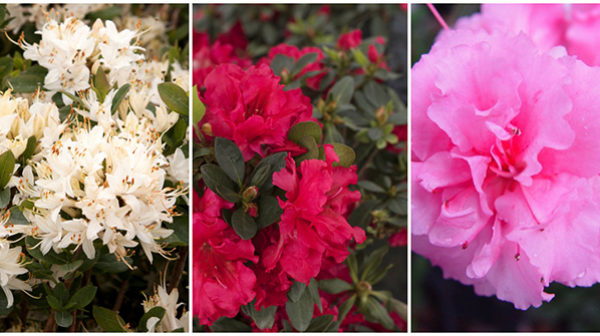
Plant early-,mid-, and late-season selections
One of the big beefs about azaleas is how fleeting is the show. The solution is using varieties that bloom at different times.
While the majority bloom in mid-spring, early varieties including Fragrant Star Azalea come on in December. Others including Lee’s Dark Purple Rhododendron bloom in early summer. Still others, such as the Bloom-A-Thon series flower in spring, summer, and fall.
Use some of each for a sequence of color that ribbons through the seasons.
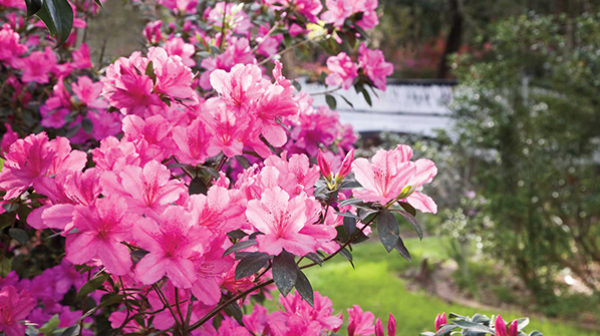
Mix deciduous with evergreen types
If you live in a warmer zone, consider combining evergreen types with those that lose their leaves.
Evergreen varieties are typically dense shrubs that looks great even when not in flower. Therefore, they help take away of the focus from the bare stems of deciduous varieties. They add fragrance, extend the color palette, and provide plenty of winter and summer interest. They also loosen the look and provide contrast.
Layer them in groups of three or more near deciduous types. Or, just groups of each type in different parts of the garden.
Azalea 4-1-1
- “Azaleas” are actually shrubs in the genus Rhododendron. All azaleas are rhododendrons but not all rhododendrons are azaleas.
- The basic difference is that most azalea flowers have five pollen-bearing stamens, while rhododendrons have 10 or more. There are always exceptions such as some native azalea species.
- Most of what we refer to as azaleas are deciduous (though there are evergreen azaleas). True rhodies (couple of species are exceptions) are evergreen.
Great Tip: If you’re adding azaleas to foundations plantings avoid excessive pruning. Do so by buying an appropriate azalea selection for the space. Ideally, shrubs should fall 6 inches beneath the sill of a window at their tallest.

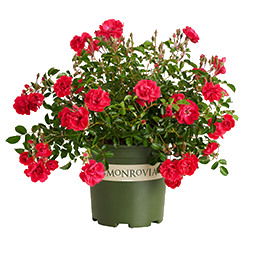



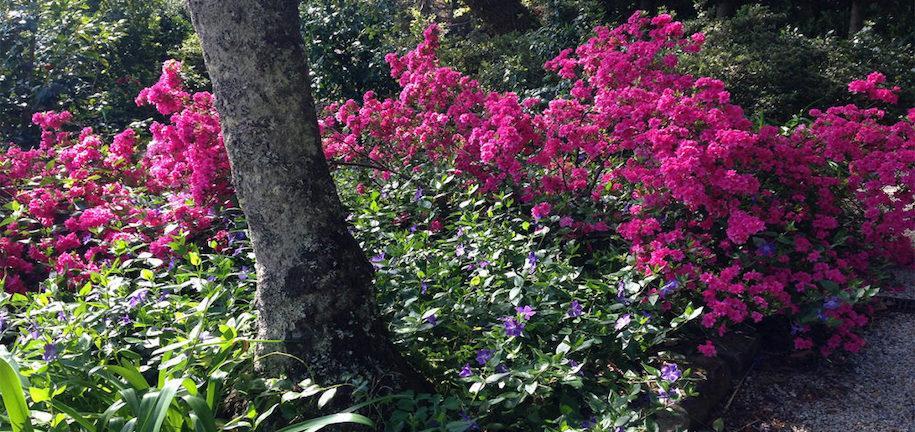
Please login to comment.
Don't have an account?
Sign Up for free